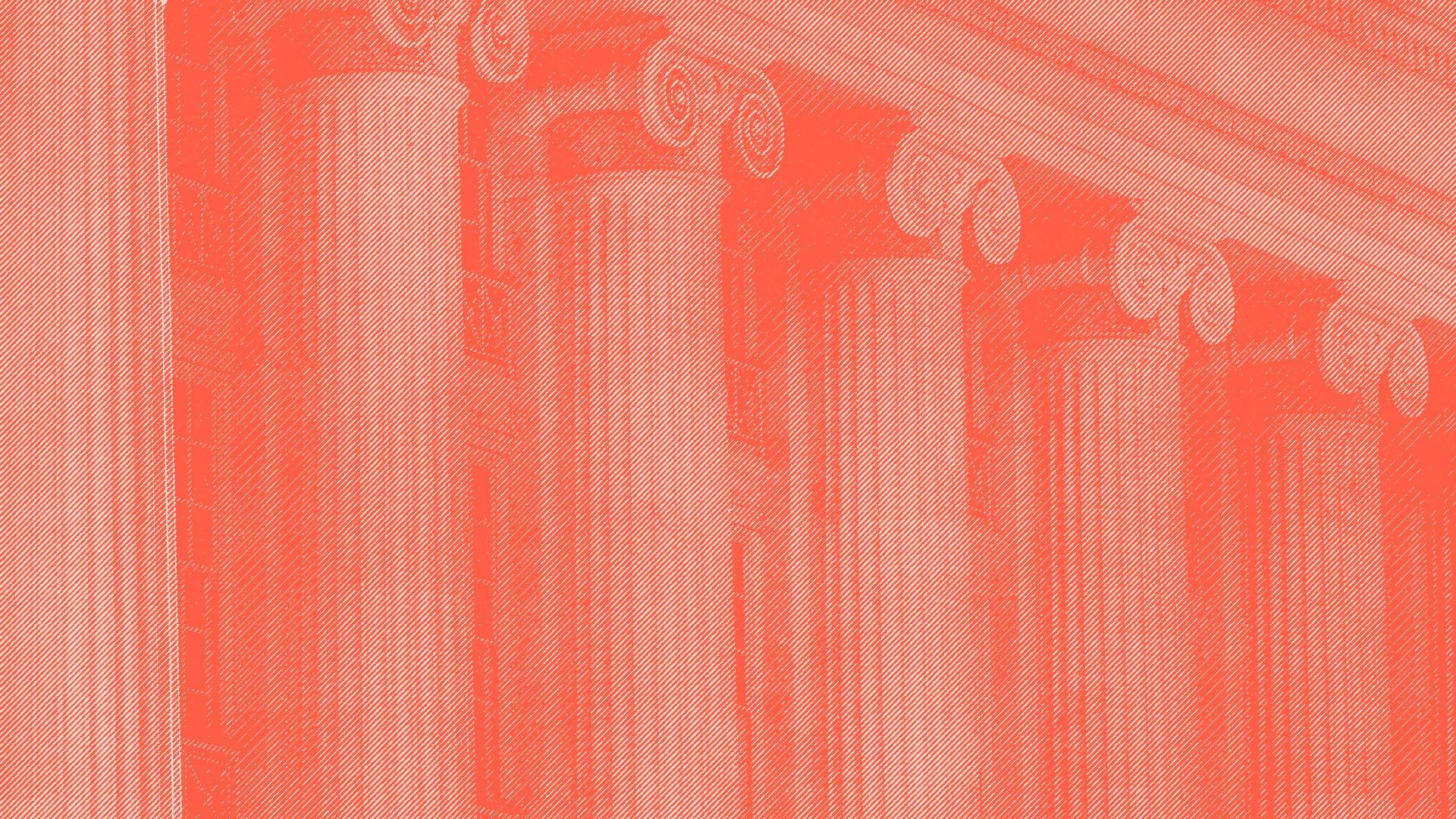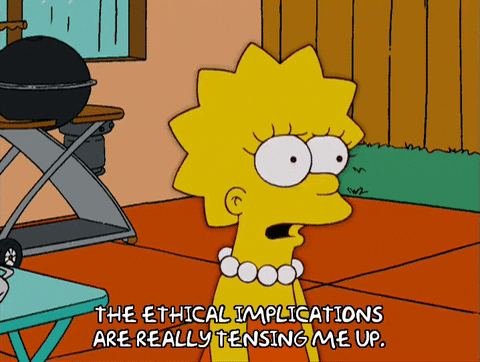Get $20 in Bitcoin when you sign up and buy $50+ in crypto before January 31, 2026. Terms apply.
Offchain: The Tower Trembles
June 15, 2023
Share this:

The SEC has launched definitive action against Binance and Coinbase. Welcome to the endgame of Crypto 1.0.
You’d be hard-pressed to find a crypto watcher who was necessarily surprised by the decision of Gary Gensler’s SEC to sue both Binance and Coinbase last week. If anything, the surprise is more that it’s taken this long to happen. Gensler has been many things since he became chair of the SEC – why don’t you try yelling some of them at the screen? – but coy about his intentions is not one of them.
To be sure, the Binance suit did not make Binance seem like a paragon of fiscal sobriety. And knowing what we do (or often don’t) about Binance, that checks out. The company is worth bajillions, has no fixed address and is roughly as transparent as a pit of asphalt.
But the Coinbase case is more vexing as, to hear them tell it, they’ve been trying to become a registered crypto exchange for years, but the SEC never quite got around to telling them how to do it. So, I guess, they should just shut down then?
So what exactly is Gensler up to? And what are the implications for crypto at large?

He who shall not be named
Gary Gensler is a great bogeyman. The sheer speed and impact of crypto culture can often feel like pro-wrestling for nerds and Gary offers an ideal arch-villain for the writers to work with. “He used to be one of us and then he started working for them? The bastard. Hit him with the lid of that trash can.”
I’m not going to say I sympathise with Gensler (because I want to keep my job), but he is approaching his campaign with a fastidiousness that the “code is law” crowd simply has to admire. In Gary’s view, the SEC has a very specific brief and he has an obligation to apply the law as it stands to the entities in front of it. Hence using 80-year-old laws to try and corral a suite of financial technologies that have as much in common with stock trading in the post-war era as a little sniffle does with the Black Death.
The thing is, outside of the degenniest degens and a few crusted-on anarcho-BTC punks, pretty much everyone in the crypto space is clamouring for regulation and clarity these days. The issues cited by Gensler have been simmering away since the days of the 2017 mania and legislators have been talking about doing something about the whole mess ever since.
So, why has literally zero progress been made? Will we need to wait until the end of another bull cycle before something gets done? Or is Gary’s Big Swing a way of pushing the whole thing to a necessary crisis point?
In the end, the beginning
I say “the endgame of Crypto 1.0” because in many ways this feels like the slow end to an arc first begun in January 2009. For 14 years, crypto has been defined by its ability to ignore the laws of mere mortals. Cryptocurrency was finance as glimpsed through a fun house mirror that was riding the world’s most ludicrous rollercoaster. Chaos, anarchy, parody: these were the defining traits of the New Money.
Both insiders and outsiders called crypto the Wild West and its rugged, unforgiving nature was part and parcel of the frontier spirit which animated it. But history tells us that the pioneer regions of the real Wild West were all eventually subsumed into the United States. The law was imposed, order came and everyone got access to telephones and toilets and all the other fun benefits of modern society.
Few now would argue that this was a bad thing. Recognition brought with it stability and a more broadly shared prosperity. The outrageous winners, far more populous losers and ruthlessly exploited underclasses of the Old West were slowly replaced by a thriving middle class and a booming economy that, in California’s case, has become the fifth largest economy in the world.
Would a similar outcome for crypto be the worst thing? There may be fewer Lambos to go around, but that was never meant to be the point of it all. Perhaps this is how we finally start getting to that future of money we’ve long been promising.
Gensler gonna Gens
To be clear, these SEC motions don’t pose an existential risk to either Binance or Coinbase. There will be wrangling, there will be accusations and then, inevitably, there will be settlement. If either of them go down, it will be purely due to their own incompetence and/or criminal culpability.
But in coming for two bona fide giants of global crypto, Gensler has kickstarted a process that will end, one way or the other, with regulatory certainty. And even if the process leaves much to be desired, that can only be a positive for crypto.
Luke from CoinJar
The above article is not to be read as investment, legal or tax advice and takes no account of particular personal or market circumstances; all readers should seek independent investment, legal and tax advice before investing in cryptocurrencies. This article is provided for general information and educational purposes only. No responsibility or liability is accepted for any errors of fact or omission expressed therein. CoinJar, Inc. makes no representation or warranty of any kind, express or implied, regarding the accuracy, validity, reliability, availability, or completeness of any such information. Past performance is not a reliable indicator of future results.
Share this:
On/Offchain
Your weekly dose of crypto news & opinion.
Join more than 150,000 subscribers to CoinJar's crypto newsletter.
Your information is handled in accordance with CoinJar’s Privacy Policy.
More from CoinJar Blog

Introducing Travel Rule Support for Your CoinJar Address Book
December 12, 2025Save time and simplify travel rule requirements for your crypto transactions. A new feature is now available in your CoinJar Address Book, designed to make your cryptocurrency...Read more
Introducing CoinJar AI
December 9, 2025A portfolio and market assistant built into CoinJar We are pleased to introduce CoinJar AI in the US and Australia. CoinJar AI understands your portfolio, tracks the market,...Read more
Onchain: Welcome to the last month of 2025
December 3, 2025Just when you get used to writing 2025 in communications, it's about to end. You look back and wonder, Where did the time go? Meanwhile, VCs are busy publishing their 2026...Read moreYour information is handled in accordance with CoinJar’s Privacy Policy.
Copyright © 2025 CoinJar, Inc. All rights reserved.
CoinJar, Inc. is a registered Money Services Business with FinCEN and licensed as a money transmitter, NMLS #2492913. For a list of states in which CoinJar, Inc. is licensed or authorized to operate, please visit here. In certain other states, money transmission services are provided by Cross River Bank, Member FDIC.
This site is protected by reCAPTCHA and the Google Privacy Policy and Terms of Service apply.